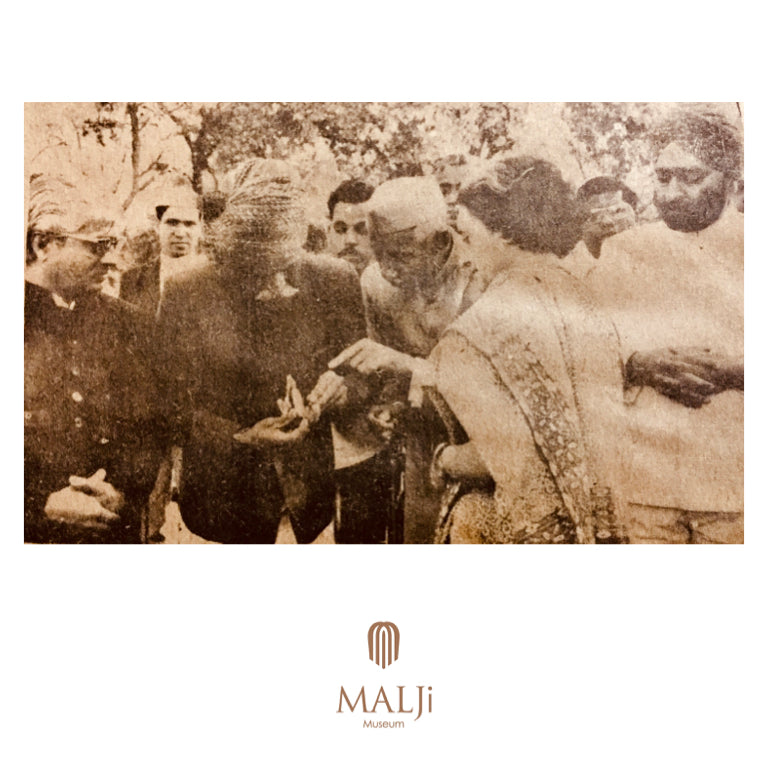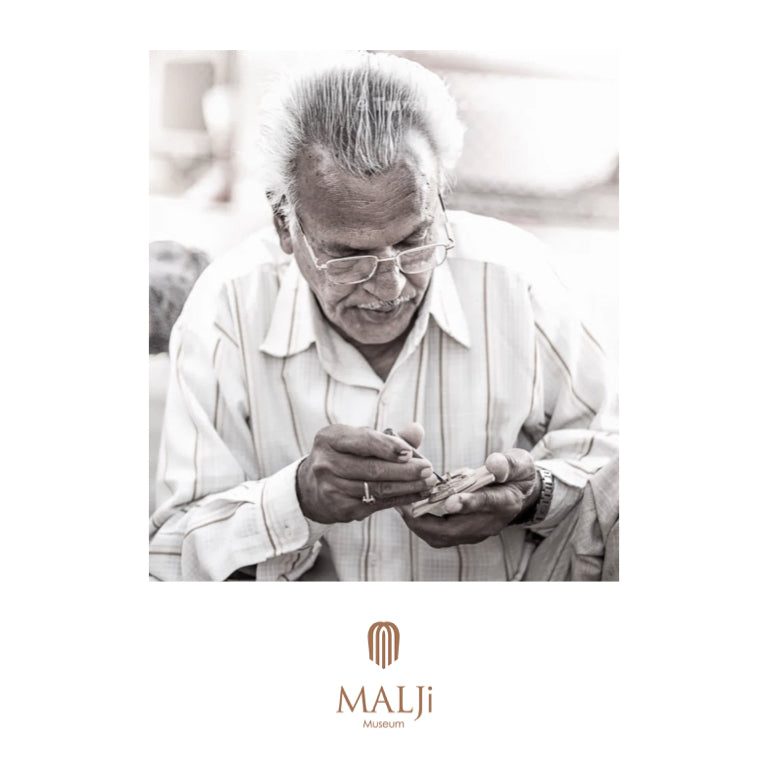MALJI MUSEUM
( MUSEUM OF WOOD CARVING )
Welcome to Malji Museum, India's first and only museum dedicated to the art of wood carving, located in Jaipur, Rajasthan. This unique space celebrates the centuries-old craft with a special focus on intricate sandalwood sculptures. The visionary behind this extraordinary museum is Mohit Jangid, who turned his family's rich heritage into a living tribute to artistry and craftsmanship.
Mohit Jangid: The Visionary
Mohit Jangid’s dream of creating a space that honors his family’s wood carving tradition became a reality with Malji Museum. Inspired by his great-grandfather, Shri Mal Chand Jangid, who pioneered miniature sandalwood carving, Mohit envisioned a museum that preserves this craft for future generations.
The Jangid Family Legacy
The Jangid family has been renowned for wood carving since the Mughal era. It was Mal Chand Jangid who elevated the family’s craft, focusing on delicate, intricate designs using sandalwood. His dedication earned him national recognition, including the prestigious National Award for Wood Carving in 1971.
Malji Museum – A Celebration of Art and Heritage:
Today, the Malji Museum stands as a tribute to this awe-inspiring legacy. It’s not just a museum; it’s a living, breathing homage to the craft that has passed down through generations of the Jangid family. As you wander through the exhibits, you’ll be transported back in time, marveling at the intricate details of each sandalwood carving. Every piece tells a story—of passion, perseverance, and the pursuit of artistic excellence.
Whether you're an art lover, history buff, or simply a curious traveler, Malji Museum offers an experience that will leave you in awe. The delicate miniatures, the evocative aroma of sandalwood, and the sheer skill behind each creation make this museum a must-visit destination in Jaipur.
So, if you ever find yourself in the Pink City, don't miss the chance to immerse yourself in this extraordinary world.
Mohit Jangid, a Sandalwood Carving Artist Whose Family Has Received Eleven National Awards:
Carrying forward the artistic legacy of his great grandfather, Mohit became a sandalwood carving artist and dreamed of opening a museum to display his family’s artwork.



Experience the captivating story of Shri. Mal Chand Jangid, the legendary master of miniature sandalwood wood carving. The Jangid family, renowned for their wood carving skills since the Mughal era, initially specialized in creating thresholds and architectural elements like others in their trade. However, Mal Chand ji elevated their craft to new heights by crafting exquisite miniatures with the smallest tools and blocks of wood he could find. Despite enduring poverty and illness, Mal Chand ji remained devoted to his artistry, creating intricate masterpieces that caught the eye of a local businessman, Mr. Nahta, who became his patron.
Experimenting with different woods, Mal Chand ji finally discovered sandalwood in the early 1960s, which became the foundation of the Jangid family's tradition of miniature sandalwood wood carving. Within a decade, Mal Chand ji's talent and prolific work earned him the National Award for Wood Carving in 1971, and a special award from then-Prime Minister of India, Indira Gandhi, the following year. His masterpiece, the Rajasthani Doll, bedecked in all the elements of traditional Rajasthani clothing and jewelry, won him the award. The doll has 11 secret compartments that open to reveal scenes from the lives of local legends and heroes, embodying all that Rajasthan holds dear - honor, valor, and beauty.
He was held in high esteem by his admirers and was affectionately referred to as the 'Badam Wala' owing to his remarkable opening sculptures. His exceptional sandalwood work was equally revered and earned him the title 'Chandan Ke Chitere'. It is evident that his passion for his craft was reflected in the awe-inspiring pieces he created, which continue to captivate and inspire art enthusiasts to this day
Upon meeting Mr. Jangid, Emami was immediately captivated by his exceptional demeanour, unparalleled skill, and unwavering passion for his craft. This encounter left an indelible impression on Emami, prompting them to further explore Mr. Jangid's artistic endeavours. As they delved deeper into Mr. Jangid's portfolio, Emami's fascination grew exponentially. They found themselves inexorably drawn to his creations, becoming ardent admirers of his talent.
This newfound admiration solidified the bond between Emami and Mr. Jangid, laying the foundation for a fruitful and enduring connection between these two entities. From that moment onwards, Emami and Mr. Jangid fostered a mutually beneficial relationship, characterized by shared admiration, collaboration, and support. This alliance serves as a testament to the transcendent power of art, bringing together individuals and corporations in a harmonious celebration of creativity and ingenuity.
